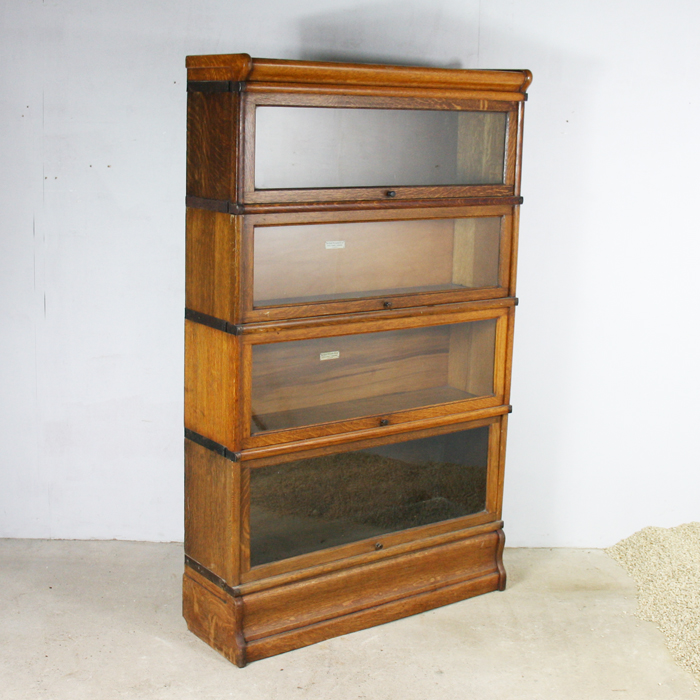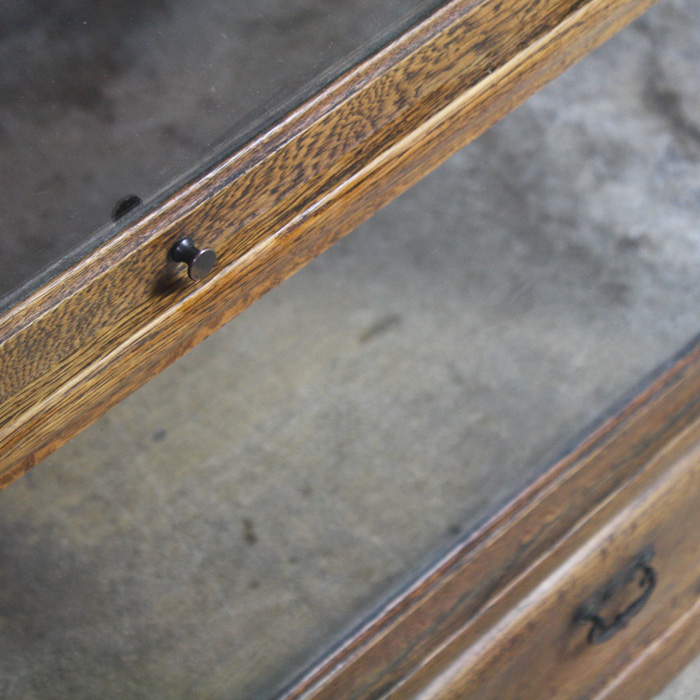Archived Stock - This item is no longer available
An English oak glazed sectional bookcase,
the four graduated box sections with the trademark lift-and-slide glazed fronts, a moulded top and raised on a plinth base, bearing the maker's mark on the back-panels,
SOLD OUT
In stock
The Globe-Wernicke Company was formed in 1899 as a result of the Cincinnati based "Globe Files Company" (est. in 1882) purchasing the Minneapolis based "Wernicke Company", founded by Otto Wernicke (in 1893). The company is best known for their high end bookcases, desks, and other office furniture. Globe Wernicke established factories in the United States, Canada, United Kingdom, France and Germany.
The company patented this, the 'elastic bookcase', a high quality stacking modular bookcase, with a standard width of 34 inches, available in oak, walnut and mahogany. Their versatility enabled bookcases to be effortlessly constructed in small rooms even if access was poor. Even a spiral staircase presented no difficulties. There are essentially two mechanism for the glazed doors – either a sprung roller or a steel scissor in order to damp the door action.
The American advert (pictured) serves to describe the selling points of the Globe Wernicke concept.
“Globe-Wernicke, Sectional Bookcases
Help Solve the Moving Problem
When people change their residences, large and cumbersome pieces of furniture invariably add to the expense and frequently become a source of anxiety because of their liability to do damage or to be damaged. Because of their sectional construction, Globe-Wernicke Bookcases can be easily moved from room to room, or from house to house. A slight re-arrangement—and they impart an entirely new aspect to the room, being easily susceptible to many artistic combinations. Our agents will arrange the sections as you may desire; also you make select a style of finish that will harmonize agreeably with the furnishings of any room”




